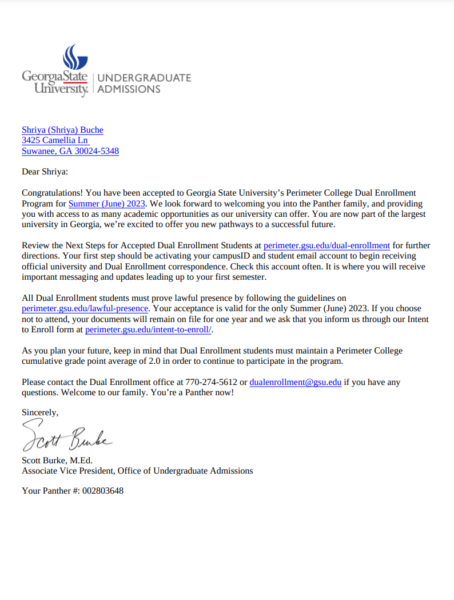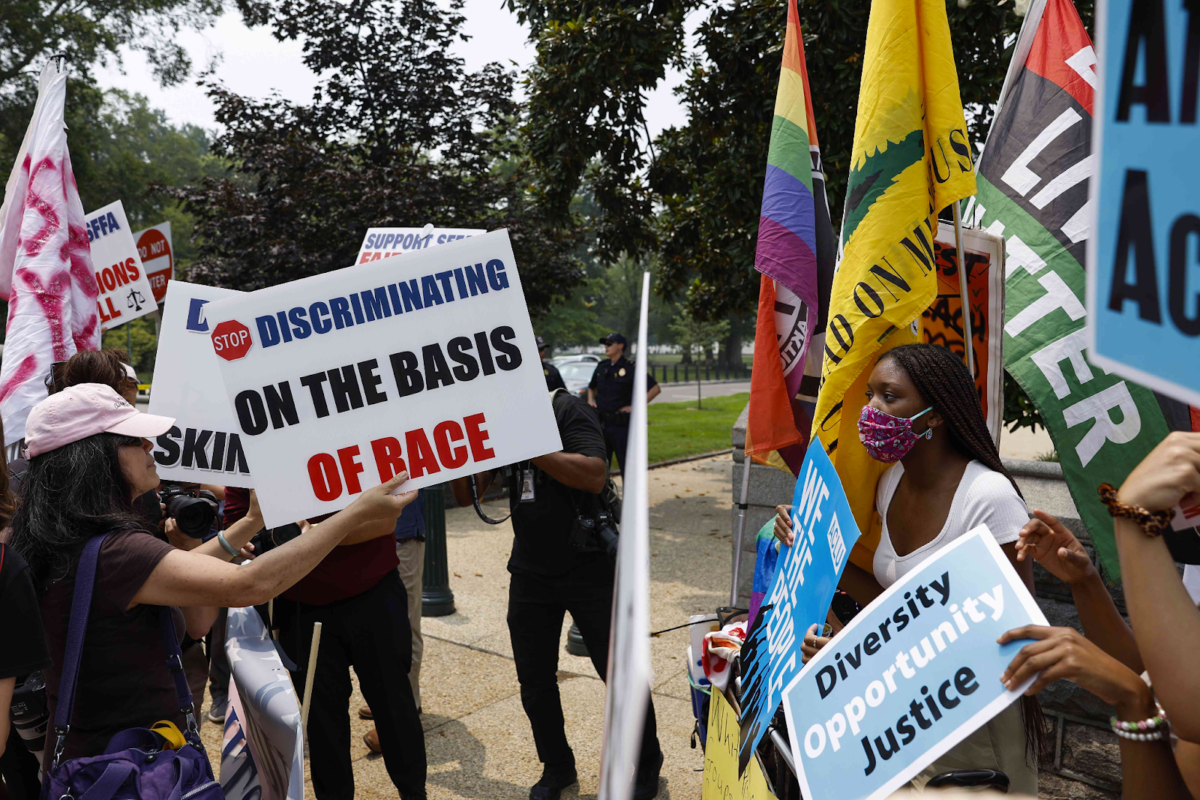Many seniors at Lambert are aware of how seemingly uncertain and random the college admissions process is. Recently, the unpredictability of college admissions increased further when the Supreme Court abolished affirmative action on June 29th.
Affirmative action is the effort to provide equal opportunities in education for those in minority groups. Many Minority groups in the U.S have access to less opportunities in comparison to their non-minority counterparts. For example, the percentage of children living in poverty was higher for Hispanic and African American communities than Asian and Caucasian communities.
Taking these factors into account, colleges cater their admissions towards ensuring that these groups have a chance at representation. However, many have viewed this process as unfavorable.
Now that the Supreme Court has ruled that affirmative action can not be a factor in college admissions, it leaves much speculation about what the future holds for college diversity and representation.
Many were ecstatic with the news, feelings as if their chances in selective colleges became boosted. However, on the other side, some felt that this took away opportunities for those who were in need.
“We shouldn’t have gotten rid of it completely,” Lambert senior Daniel Cuervo said. “And what I’m trying to say is we might not have the same resources, because of our parents. They might not know college inside and out, especially in America. So I feel like affirmative action definitely helped along with that process.”
A common misinterpretation with affirmative action was that certain races had higher chances of admission. Because of this, many minorities have experienced comments regarding how their acceptance may have been attributed to their race.
“Me personally, they could have said what they want,” Daniel Cuervo said. “But I do understand how annoying it could be because you still work hard for what you want to do.”
On the other hand, some may think that this recent supreme court decision won’t have a huge effect on admissions
“I would say that in terms of the college chances, they really don’t have a major effect,” Lambert senior Hanming Sun said. “For example, Harvard, right. Instead of having one supplemental [essay] this year, they now have five supplementals, which allows you to really showcase yourself a little bit more in who you are as a person.”
As the first graduating year after the government decision, students of all cultures applying to colleges are anxious about how this abolishment will affect future university demographics.
“I think, definitely, there will be a change, especially considering they aren’t able to take in all the information now,” Hanming Sun said. “But I still think colleges will do a good job with trying to create that diversity that they really want.”
















